
views
Alleviating Hunger Pains

Drink a glass of water to reduce your discomfort. It’s easy to confuse hunger and thirst pains, so some water might be all you need! Get a large glass of water and take your time drinking it. Wait around 20 minutes to see if your hunger pains have curbed. If plain water feels too boring, try adding a squeeze of lemon for a bit of flavor.
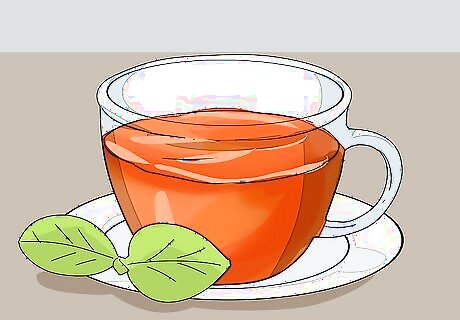
Try drinking black or green tea to suppress your appetite. Tea is wonderful for helping you to stay fuller for longer and to get rid of any annoying pangs. Make a cup of your favorite tea and savor it by drinking slowly. You may be surprised that you don’t feel as hungry after 30 minutes! Tea helps to reduce the cortisol hormone, which lowers food cravings.
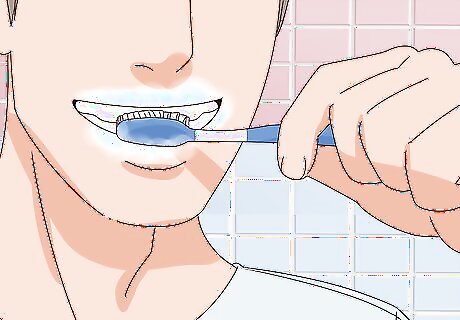
Brush your teeth to help curb your appetite instantly. Not only is brushing your teeth a good distraction from the hunger pains, but it can also make you feel less hungry overall. Simply smelling the peppermint scent of toothpaste can help to reduce your level of hunger and any food cravings that you might have. Brushing your teeth can also help you to make healthier food choices, as you will be less likely to want something sugary if you have just cleaned your teeth. Avoid brushing your teeth more than 4 times a day, as you could wear away your enamel. This could lead to tooth pain and damage.

Distract yourself by reading, socializing, or exercising. Often hunger pains will go away for a while if you simply ignore them. Go about your day and try to stay focused on activities that take your mind off the discomfort. You could read a good book, talk to a friend or family member, or head outside and go for a walk. Try to avoid reminders of food while you are distracting yourself, as this could make the hunger pains worse. For example, stay away from the kitchen and don’t read cooking books.

Give yourself a set amount of time to be hungry. Hunger pains tend to fluctuate rather than steadily becoming worse, and you will be okay if you try to ignore them for a little while. Try to give yourself an end time when you are able eat and quell the hunger pains. This reinforces the fact that you won’t be hungry for much longer and that you can cope in the meantime. For example, you could decide that you will eat at 5:00pm or as soon as a particular meeting is over.
Preventing Hunger Pains
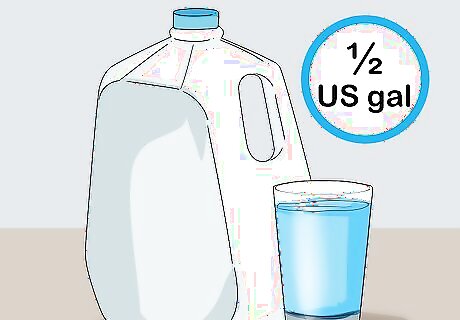
Drink approximately ⁄2 US gal (1.9 L) of water every day. If you’re thirsty, it’s common to feel pain that is very similar to hunger. Stay hydrated to avoid this problem. Carry a reusable water bottle around with you everywhere you go and keep it filled up at all times. Try to avoid coffee and alcohol, as these beverages can make you dehydrated. Aim to drink enough water so that your urine is very pale yellow. If it’s dark, drink more water. You should be urinating every two hours or so. If you have trouble remembering to drink water, leave yourself reminders around your home or workplace, or set a reminder on your smartphone. Alternatively, you can also download smartphone apps that track your intake and remind you to drink water throughout the day.
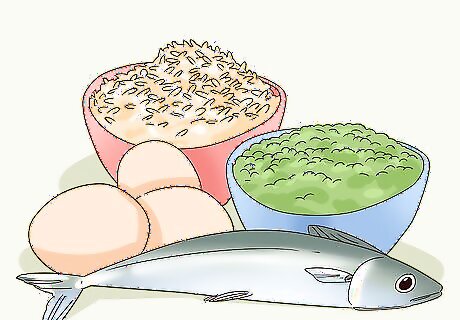
Consume nutrient-dense foods like fruits, vegetables, and lean proteins. Your body needs plenty of nutrients to thrive! Eat lean proteins like fish, eggs, and legumes, and plenty of whole-grains too like brown rice, quinoa, and oats. Fill up on your favorite fruits and vegetables to ensure that your body has all the vitamins and nutrients it needs and to keep hunger at bay.

Choose high volume foods to help you stay full. Foods that are high in volume will help you to stay fuller for longer and avoid those pesky pains! Try high volume foods like leafy greens, cauliflower, oatmeal, and popcorn. Foods that have a high water content like soup can also be helpful. Green smoothies are also great because they are high in volume and water content.
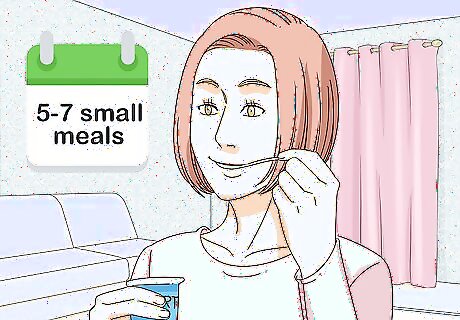
Eat smaller meals more frequently throughout the day. If you simply rearrange what you’re already eating to spread it out more evenly, then you shouldn’t feel as hungry! Try not to leave large gaps between meals. Eating every 3-4 hours during the day is ideal and prevents any long stretches without food. Simply reduce how much you eat at every meal to break the same amount of food into smaller portions. Weight loss or gain is dependent on what you consume, rather than when you consume it. Aiming for 5-7 small meals each day is ideal.
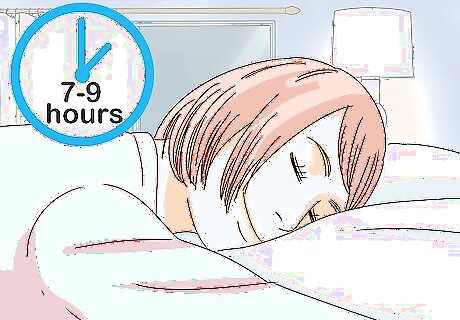
Aim to get 7-9 hours of sleep every night. Sleep is vital when it comes to your body giving you correct hunger cues. If you don’t get enough sleep, you may feel hunger pains more frequently or intensely, despite not actually being more hungry. Go to bed at a reasonable hour every night and practice waking up at the same time each day. This gets your body into a good habit and helps you to feel fuller and more energized throughout the day. If you have trouble sleeping, there are plenty of things you can do. Try to relax just before bed by reading a book or taking a bath, avoid bright lights while you are trying to sleep, and make sure your bedroom is dark and quiet.
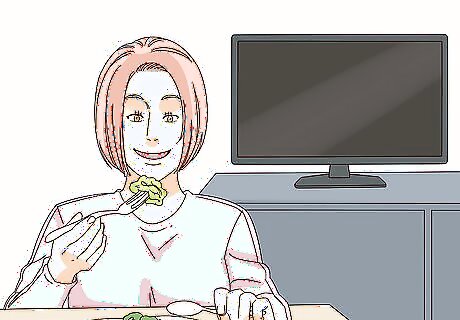
Take your time at meals and focus on what you’re eating. A big part of reducing hunger throughout the day is eating intentionally at meal times. Avoid watching TV or working while you’re eating, as these distractions make eating less memorable. You are then more likely to feel hungry later on, whether you actually are or not. Try to be mindful about what you’re eating. Focus on the taste, smell, and texture of the food, and chew each bite slowly.


















Comments
0 comment